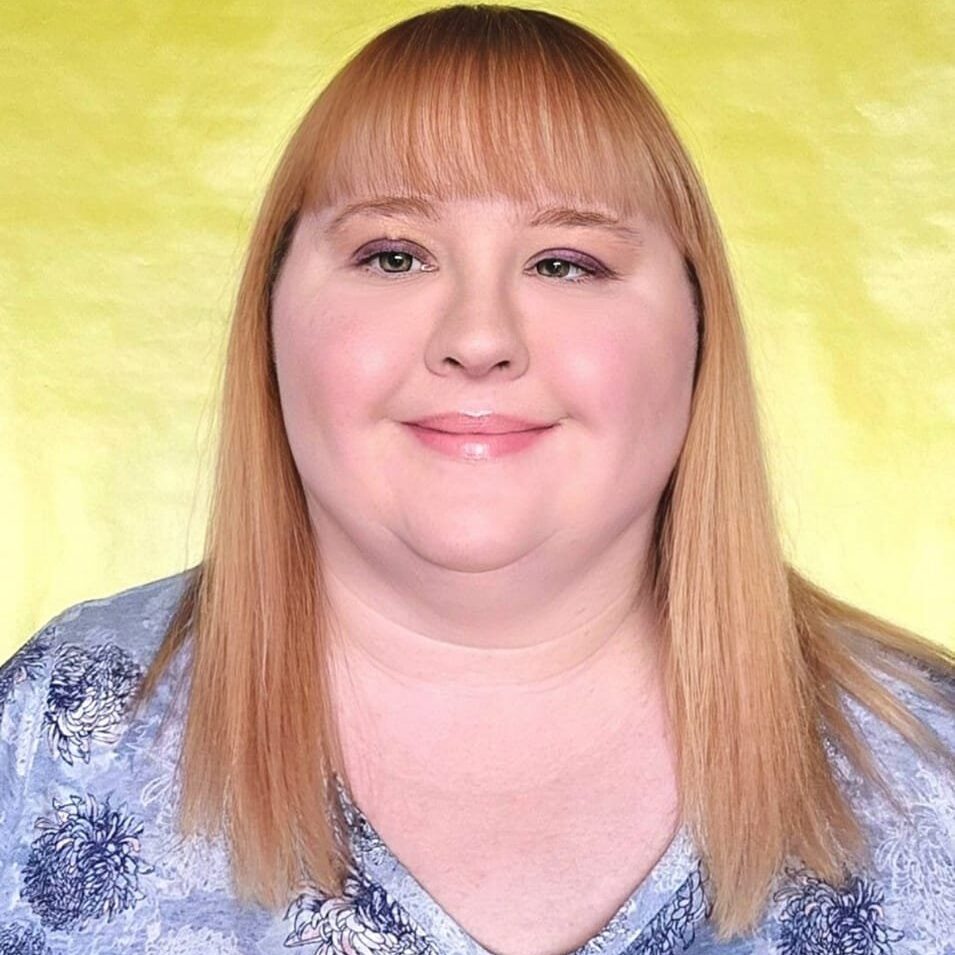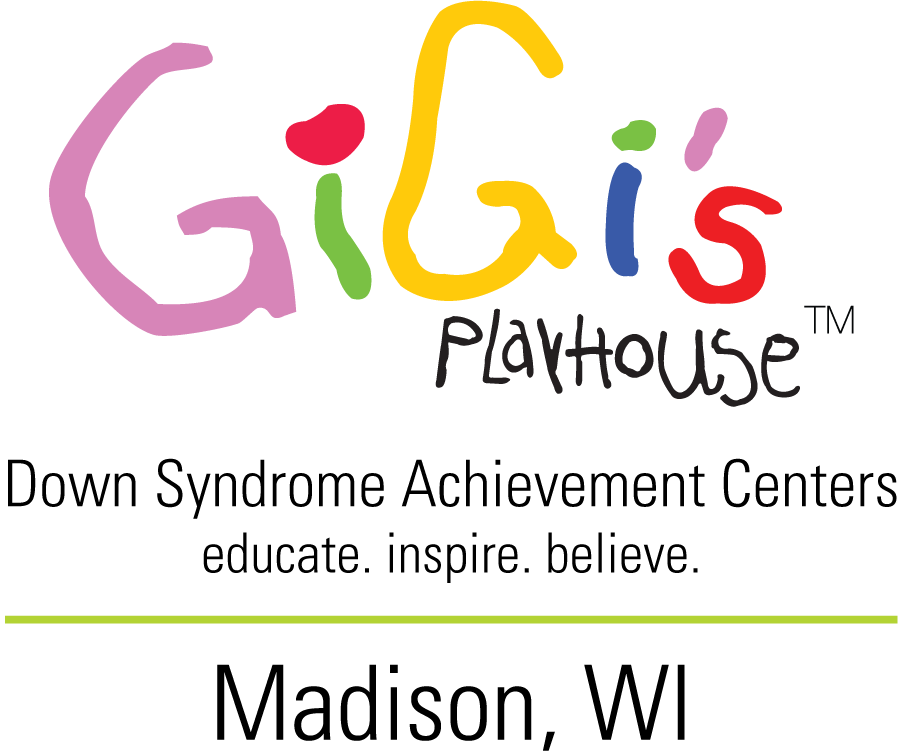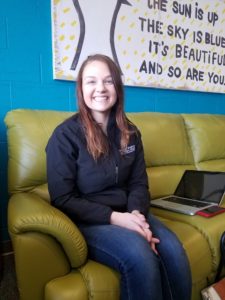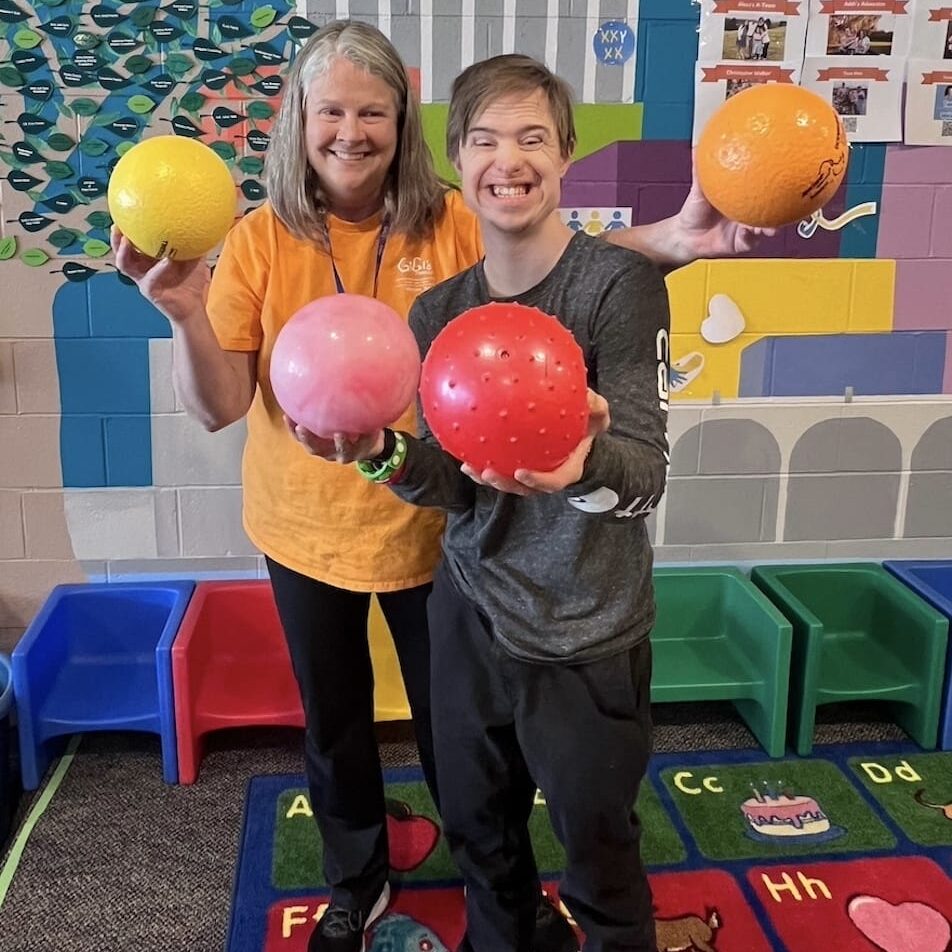We are the next generation of physicians …..
Lauren W. is a medical student at the UW School of Medicine and Public Health and a participant in the Community Health Advocacy Project. Her paper is about “Delivery of a Down Syndrome Diagnosis”. Thank you, Lauren!!
In our training, we are taught that there is a trisomy of the 23rd chromosome; that up slanting palpebral fissures, epicanthal folds, flat nasal bridges, and low set ears are characteristic facial features; that the incidence increases with mothers of increasing age; that congenital heart disease and dementia are much higher in this population. We are taught to screen for defects on 20 week ultrasounds, perform chorionic villus sampling, or even perform a blood screen to detect it early. We are taught that developmental delay, mental retardation, slow growth, hearing loss, strabismus, hypothyroidism, and leukemia are common in this population. We are tend to focus on the negatives. It’s not surprising why this may be the way we approach the diagnosis with our patients.
One in 700 babies are born with Down syndrome, accounting for a total of 7,000 babies each year. We have come a long way in caring for these patients and combating the stigmatization that had been bestowed upon them. In the 20th century, many individuals with Down syndrome were institutionalized, forced to become sterilized, and would die in early infancy or adulthood because their medical conditions were left untreated. The life expectancy now exceeds 60 years.1 There are now better educational programs, medical advancements, resources and family support that have allowed people with Down syndrome to reach a fuller potential and have a high quality of life. Most children complete public school programs and participate regularly in community activities.1 Two percent complete college or post-grad school. Four percent obtain full time jobs and while the remaining receive some financial support from the government. One to two percent get married and have children.2 But most importantly, most of the parents of a child with Down syndrome view them as a gift and think that their life changed for the better by having that child in it.
Telling an expecting mother that her child has Down syndrome is undoubtedly an emotional experience. No one anticipates that their child has Down syndrome, so emotional reflexes and fear of the unknown are valid reactions. It is crucial the way we physicians convey information and offer support to our patients and their developing child. It is crucial to congratulate the expecting parents on the conception of their child. They should be given time to process this information. As clinicians, we need to be mindful of the language in which we communicate to ensure to provide unbiased, culturally sensitive, and complete information about down syndrome, “emphasizing that a child with Down syndrome is a child first.”1
This latter is often lost in the diagnosis discussion process, although it may be one of the most important things you say that day to a mother of child newly diagnosed with Down syndrome. Anecdotal evidence clearly illustrates that this occurs all too often. At the time of diagnosis, mothers are told “the good news is you are still able to terminate,” or “you have probably seen them bagging groceries at the store,” or that “at worst he will never be able to feed himself, at best he will mop the floors at a fast food restaurant one day.” Many mothers who find out that their child has Down syndrome at time of delivery are told “I’m sorry” rather than “congratulations.”
As physicians, we are used to giving bad news and diagnoses– abnormal lab results, findings on radiologic studies and pathology. When we communicate this, we usually focus on the risks, how this could negatively impact them in the future, and what we are able to do about it. There is this prerequisite of informed consent, in which we want to make sure our patients know every negative outcome that could reasonably happen, so that they are not blindsided by a consequence of a decision they make. So, we fall into this same pattern when delivering a diagnosis that a child has Down syndrome when it is actually much different. We are talking about a child not just a diagnosis, and fail to mention all the beautiful things that come along with not only having a child in general, but the other special things about having a child with Down syndrome.
We are limited in our ability to inform the patient about what it actually is like to have a child with Down syndrome, as many of us probably haven’t had much personal experience with this. Resources should be offered to the parents, including the possibility of going to local community programs or support groups so they are able to make connections with people who do actually know what life is like. The anxiety that comes with the unknown is difficult to vanquish by reading statistics and facts. Personal stories of experiences may be the best education for expecting parents and may tremendously help them be more comfortable and confident with the decision they make.
One growing resource for families of those with Down syndrome, even in our local area in Madison, but also across the country, is Gigi’s Playhouse. This is a nonprofit organization nearly entirely volunteer run and free of charge that helps people with Down syndrome with a vast variety of social, communicative, academic, and daily living skills so that they can reach their full potential. Obstetricians should be aware of what the local resources are and provide this information to the expecting mother at the time of diagnosis.
It is our duty as doctors to fully educate the patient about their potential options and help them with the decision-making process in an unbiased, competent way, having the patient’s goals and personal beliefs in mind. This is true for any aspect of care in any field of medicine, not just the results of prenatal screenings. It is something that seems to be improving, but still obviously prevalent in regards to this particular situation. We are the next generation of physicians, and it is my hope that we perpetuate the culture of change toward a non-paternalistic role in medicine and rather be a foundation of support and guidance.
References
- Bunt CW, Bunt SK. Role of the family physician in the care of children with Down syndrome. Am Fam Physician. 2014;90(12):851-858.
- Zhu JL, Obel C, Hasle H, Rasmussen SA, Li J, Olsen J. Social conditions for people with Down syndrome: a register-based cohort study in Denmark. Am J Med Genet A. 2014;164A(1):36-41.
Recent Posts




